Sustainability around the home
Posted on: 2 September 2019
I'm a keen believer in living life around the three Rs (Recycle, Re-use, Reduce). Whilst I'm far from perfect, and always looking for other optimisations I can adopt, I've made a number of small changes at home over the past few years to be a more conscientious consumer, and human. Here are 9 things I've adopted into my homelife, and you may be able to too.
1. Recycling
This one is so plainly obvious it's hardly worth mentioning. Recycling is ubiqutious in modern society now, and for good reason. Always try to minimise landfill waste wherever you can. Whether by only buying products in recyclable packaging, or perhaps not buying the package at all (more on that later). Above all, always check your local recycling because unfortunately not all councils have the same facilities.
2. Composting
This is something I've started fairly recently, and it's not something that comes to mind for urban living. You'll need a compost caddy (small bin) and a larger outside composting bin, which is often heavily discounted by your local council, so be sure to check their website first.
We use the Joseph Joseph Stack Food Waste Caddy (available for around £15 from places like John Lewis and Amazon, complete with compostable liners. You can easily grab a caddy for much less though, or even use an old ice cream tub if you don't mind more frequent trips to the main bin. I picked up the Blackwall 220 litre compost bin for outside - but do remember to check your local council website for deals; ours only ended up costing us £10!
Composting is brilliant because you can keep all the smelly stuff like food scraps and food waste, as well as any other organic matter like weeds, grass clippings, etc. out of your general waste. I was impressed to see how much less I used the main bin once I got my composter.
Be sure to combine organic matter (greens) with slower-rotting materials (browns) such as newspaper, cardboard and sawdust to get the correct combination for composting. You can read more about this on Even Greener.
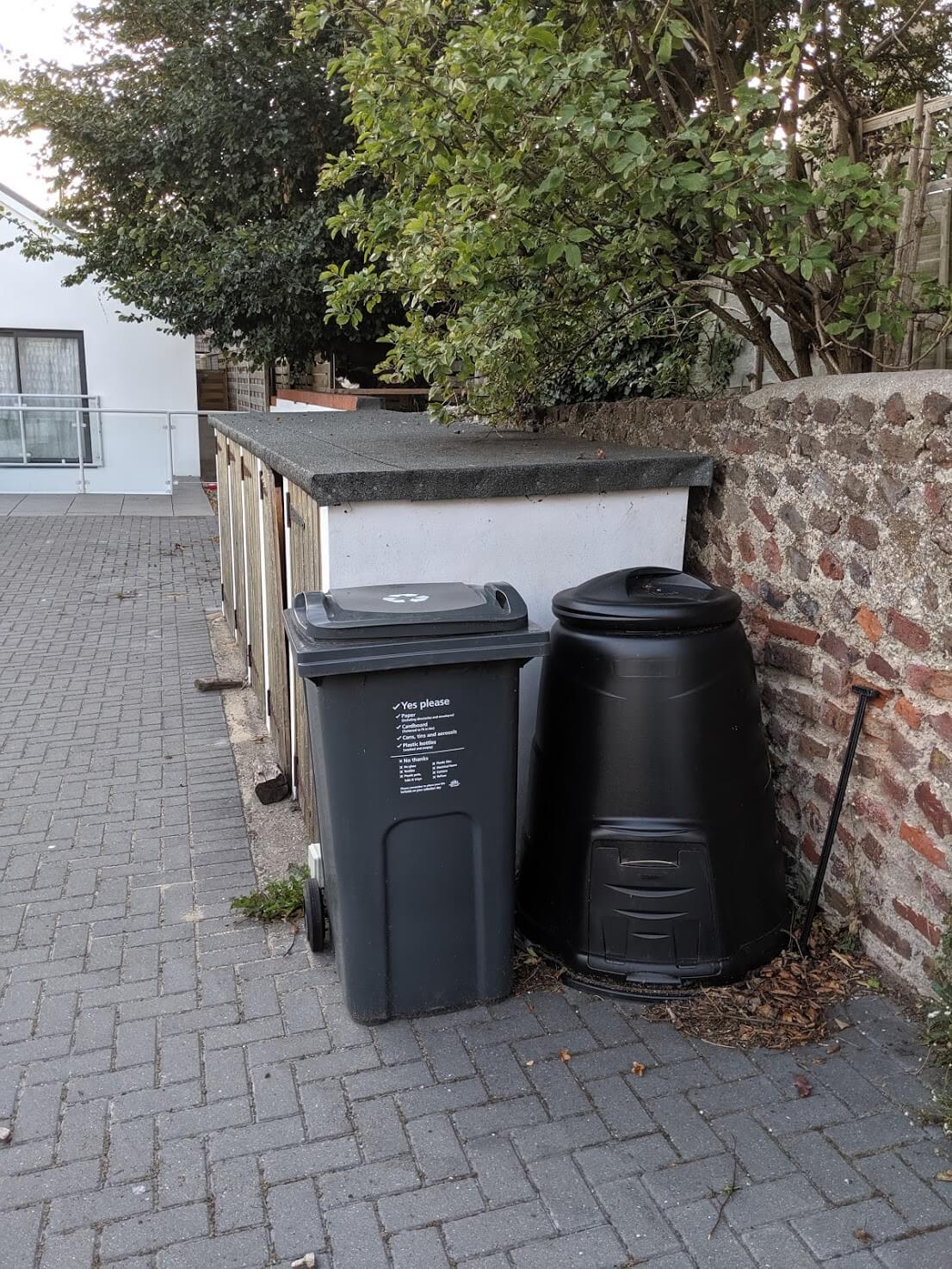
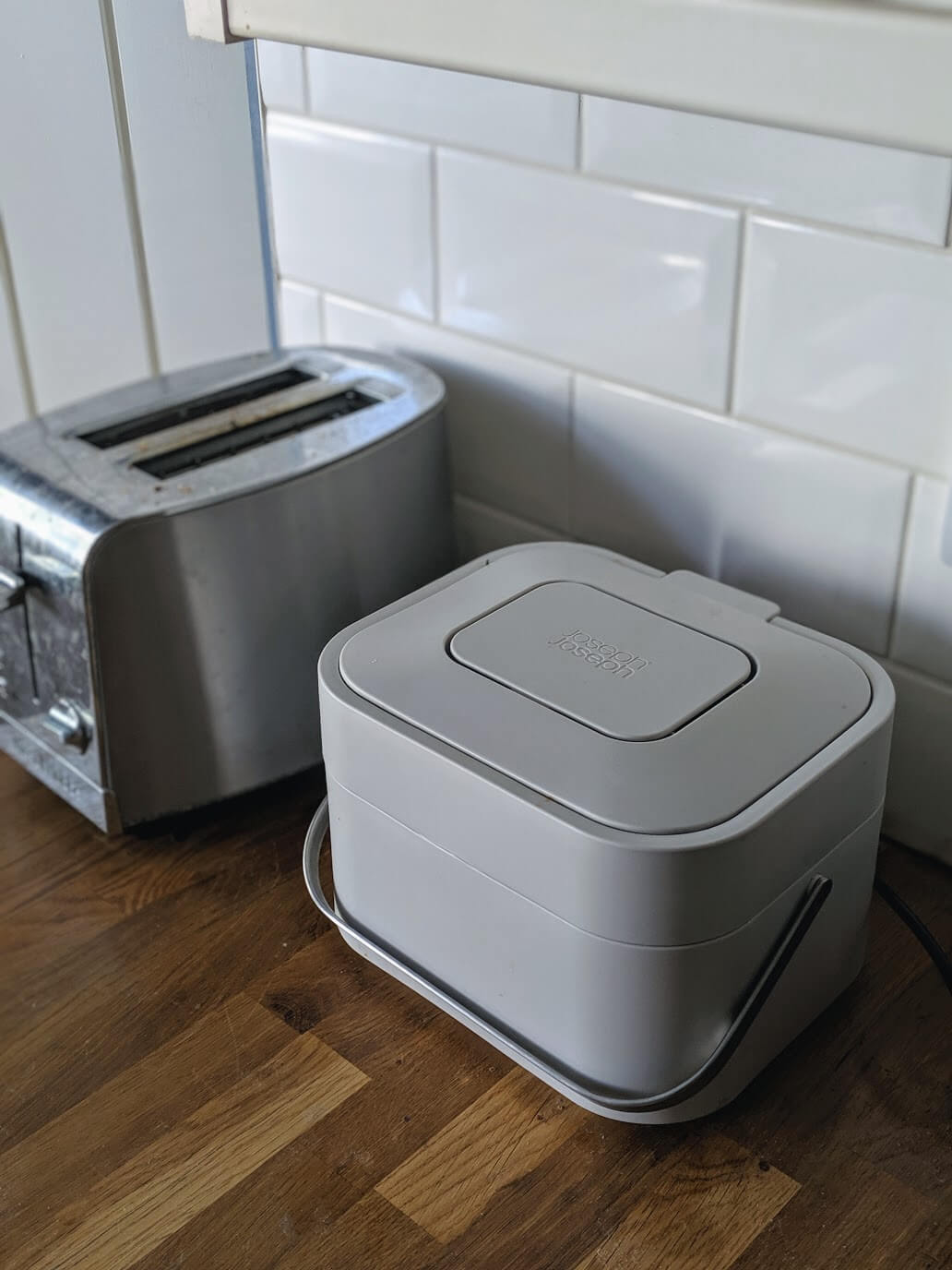
3. Reducing plastic usage
Whilst it's great that a lot of plastic is made from recyclable materials and most can then be recycled again, this is not a sustainable and lasting process. By far the better solution is to not buy that plastic in the first place!.
We're incredibly fortunate that a zero-waste, no-plastic store on our road opened their doors earlier this year. We've been able to cut out plastic packing for grains, nuts, seeds, dried fruit, shampoo, washing up liquid, laundry detergent, soap and more! You'll need some glass or metal containers to keep your ingredients in, but stores like this make it incredibly easy and satisfying to top up your store cupboard without touching any plastic.
This won't be a service available to everyone, I realise, but Waitrose's recent experiment of adding refillable, plastic-free products to a few select stores was a roaring success; which means we're on the way to this becoming mainstream!
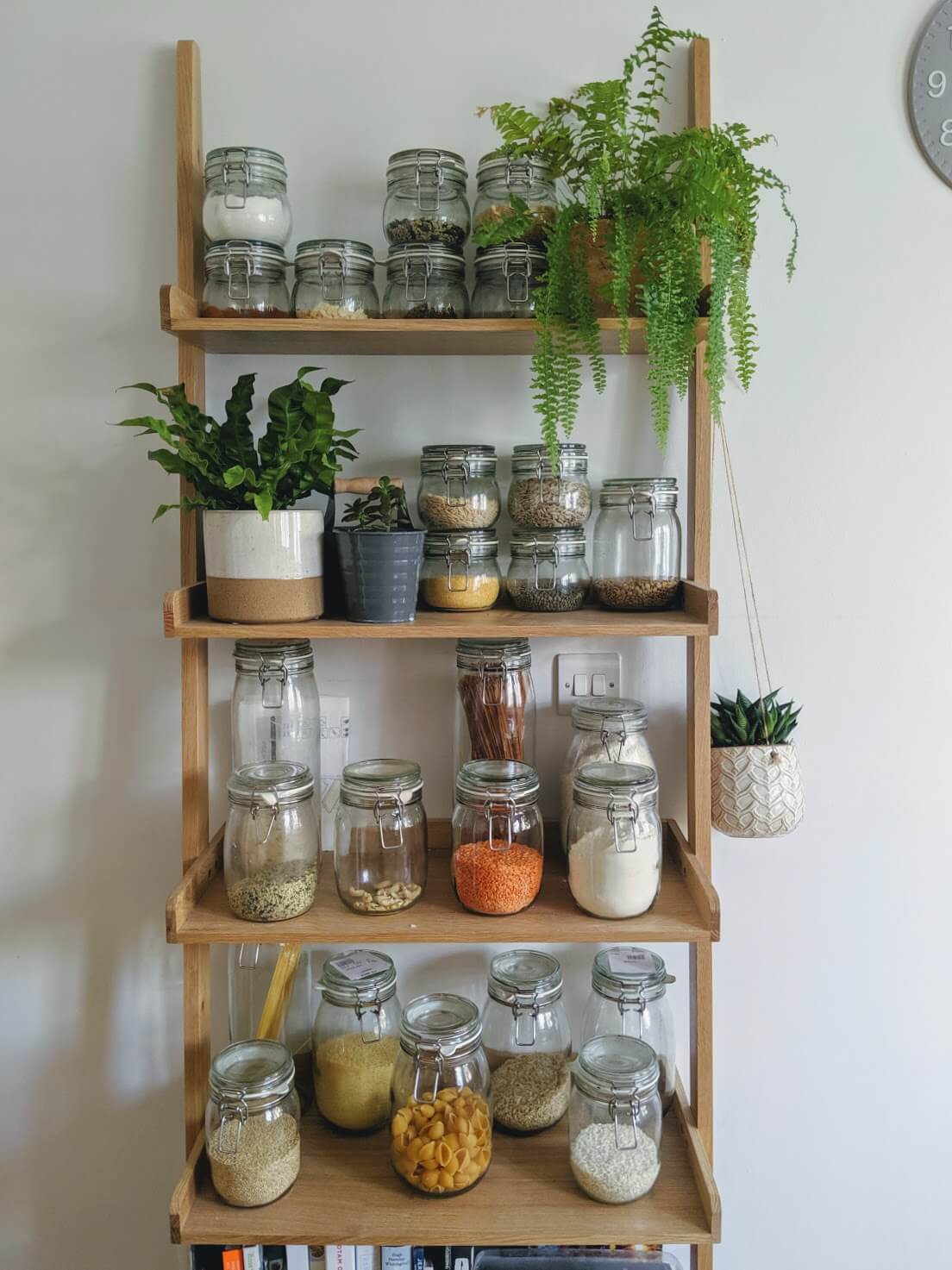
4. Reusing plastic containers
As well as I try to reduce my plastic consumption, sometimes it's unavoidable. In these cases I always try to spot packaging with resealable seals. This is becoming quite common on products like frozen fruit and veg, and nuts. These are really useful to have around the house for alternatives to plastic bags for packed lunches, or freezer bags for leftovers.
5. Trickier recycling
Further to point 1, there are several types of cartons commonly found in supermarkets which some councils (ahem, Brighton) won't recycle as part of general household recycling. Tetrapak is the most common, and something most plant-based milk drinkers will be familiar with. Cooked beans also often come in Tetrapak containers. Brighton has separate sites around the city where Tetrapak can be dropped off; I'll do a stop every 4-6 weeks once my pile starts overflowing(!)
In the past few months I've also started recycling the catfood pouches we buy from James Wellbeloved with Terracycle. Taken from their website:
TerraCycle® is the world leader in the collection and reuse of non-recyclable post-consumer waste. TerraCycle® partners with brands in 21 countries around the world to set up nationwide recycling solutions for types of waste which can’t be recycled by municipal systems so would otherwise end up in landfill/incineration. TerraCycle®’s ultimate goal is to Eliminate the Idea of Waste® – the waste packaging / products it offers solutions for is recycled with the materials being re-purposed as new products.
Suffice to say when I found out about this scheme I was thrilled, as I'd been forced to throw these into general waste prior to that. I'm not sure when I started saving them but Chester's amounted a fair few!
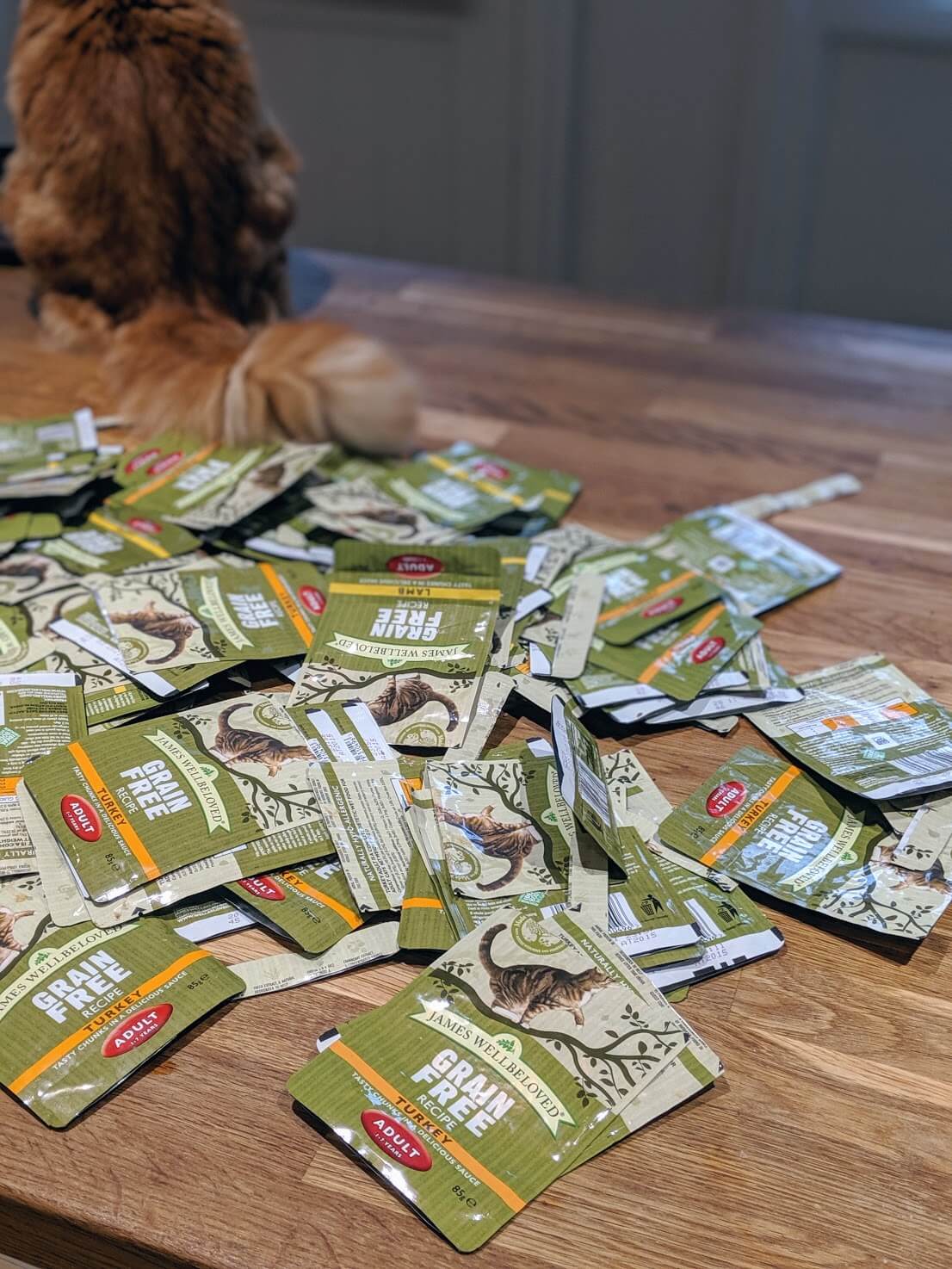
Brighton has various drop-off points around the city, and this is a nationwide scheme, so if you're currently using food pouches for your pet, check it out!
6. Ethical toilet paper
It's mad how much toilet paper we use a year (apparently the average person uses 127 rolls a year, according to The Guardian) so it pays to find a good brand.
We've been using Who Gives a Crap for the past year; starting off using the delivered boxes but later moving onto buying individual rolls from our local zero-waste store. Who Gives A Crap believe in environmentally friendly materials, and amazingly donate 50% of their profits to help build toilets for those in need. You can read more about their company ethos on their website.
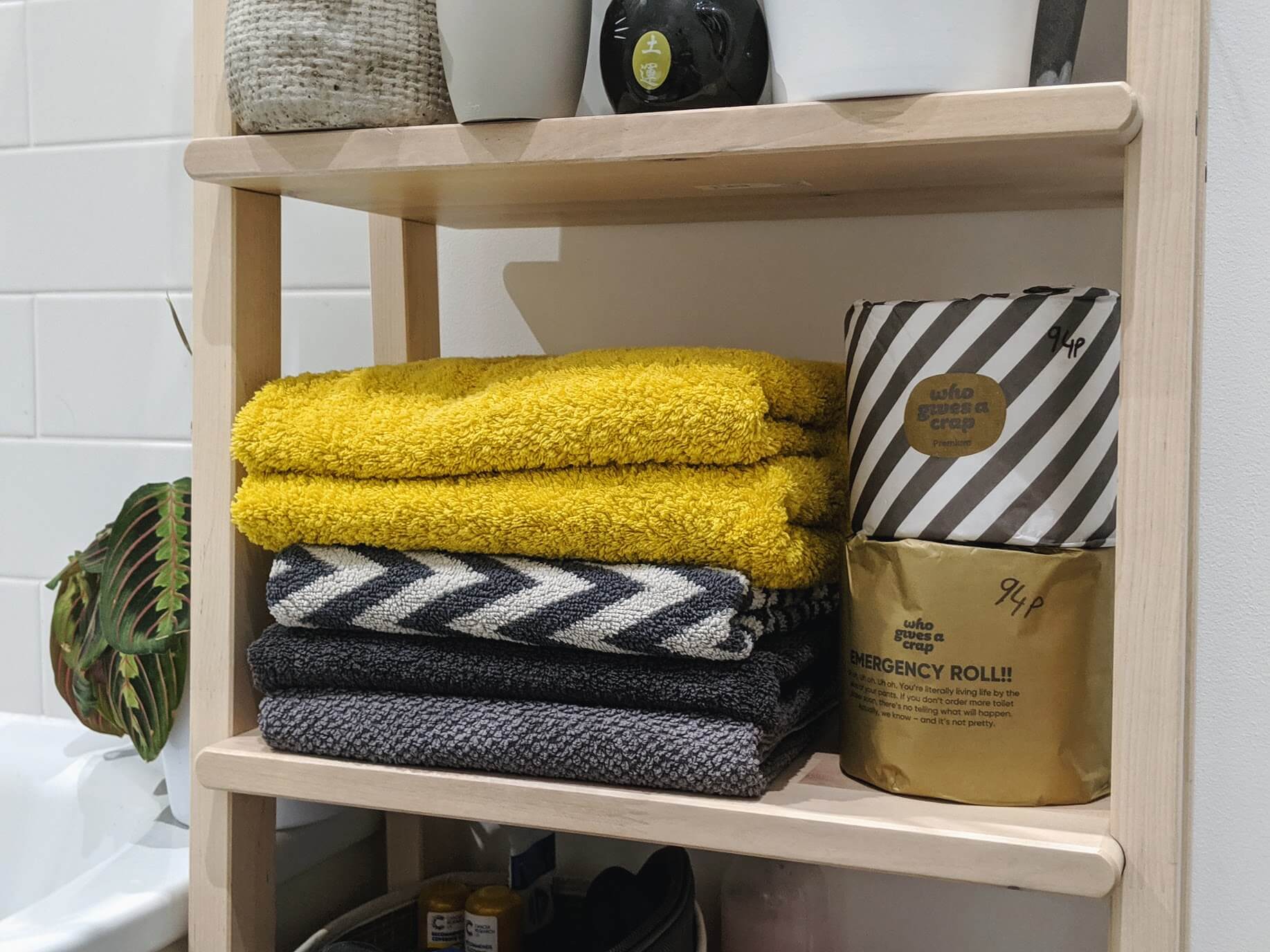
Toilets and sanitsation facilities in general are something we in developed countries take hugely for granted. I'm happy to pay a little more to know a company is helping tackle this global inequality.
7. Food miles
Lately I've tried to look out for where my food comes from a lot more. UK supermarkets are only required to put the country of origin on the label of fresh fruit and veg when they've come from outside the EU, but Sainsbury's are fairly good at always stating this regardless of country. Ideally I'll look for fruit and veg grown in the UK, or failing that, another close by EU country. Food miles can contribute significantly to your personal carbon footprint.
Buying fruit and veg from local markets or independent supermarkets usually gives a better likelihood of local produce; and this is something I need to get better at doing. Hisbe and Infinite Foods in Brighton are great for this.
8. Animal and Earth friendly deodorant
I've recently switched to Nuud deodorant after most of my life using spray-on antiperspirants. I was inspired by their ethos of all-natural, good for the environment (both in waste ingredients and packaging), 100% vegan, and healthier for the body. We as country use around 600 million aerosals each year, which is staggering really. I'll let Nuud do the talking, but I've been really happy with the results after about 6 weeks of usage. They offer a sampler tube to see if it's right for you.
9. Energy supplier
This is one of those backburner tasks you're always told to keep on top of; finding the cheapest energy supplier. For us, renewable energy was a big consideration in switching. We were introduced to Octopus by my bank Monzo, and they offered the whole switching in-app. After a little investigation, it seemed the perfect choice. We also got to keep our Smart meter which was a plus. Octopus put it better than I could:
The energy industry in Britain is ruled by a handful of complacent dinosaurs peddling fossil fuels, pricing trickery and poor customer service. In 2016, Octopus entered the market to disrupt the status quo with energy that's good for the planet, good for your wallet, and, honestly, good for your soul.
I was sold!
There's always room for improvement; I have many more things I want to optimise in my day-to-day routines in a bid to further cut down on waste. What seems pointless or cumbersome at first can quickly form into a habit and become second nature. In the coming weeks, I plan to write up a closer look at what I put in my general waste in the average week.